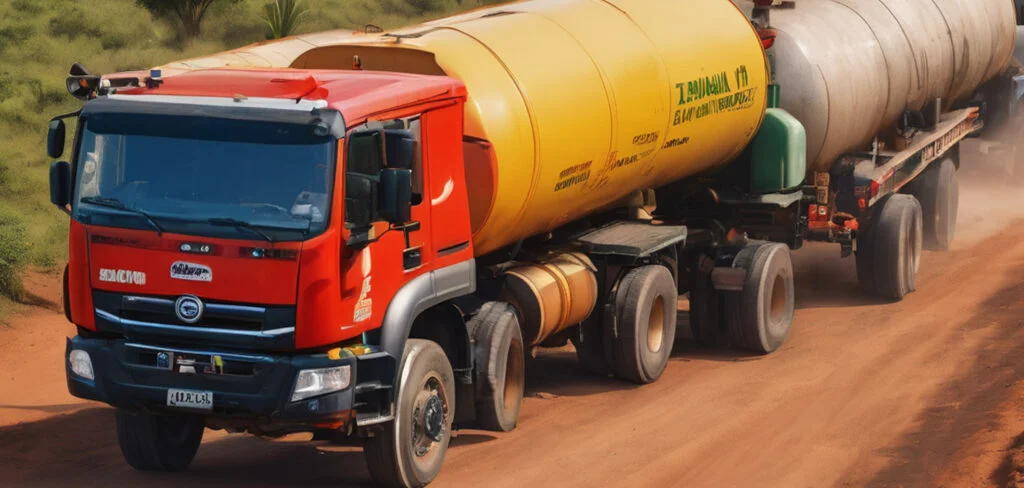
Uganda expands its crude import routes to satisfy consumer demand
The ports of Mombasa and Dar es Salaam are being considered as import routes by Uganda to guarantee an adequate supply of crude. It is a method, according to officials, of averting the errors of the past, which were the result of issues with delivery schedules, which led to shortages.
Kampala is still scrambling to meet its capacity, barely a month after Uganda imported its initial crude through the port of Mombasa. Despite the additional expense, the Uganda National Oil Corporation (Unoc) has been compelled to supplement the volume through Tanzania as a result of this situation.
The Dar addition, according to Kampala, will assist in satisfying its requirement for over 174,000 metric tons (MT) of crude under the Petroleum Products Supply Agreement between Vitol Baharain and Unoc.
According to Tony Otoa, the Chief Corporate Affairs Officer of Unoc, the country’s decision to import a portion of its oil through Tanzania was made to guarantee that it maintained sufficient monthly inventories of 80,000 MT of petrol, a comparable quantity of diesel, and 14,000 MT of Jet-A1 and kerosene.
“We are encountering some difficulty with the constraints established in Kenya.” He also stated that the reason for Unoc’s visit to Dar es Salaam is not related to cost; rather, it is necessary to ensure that our demand is fulfilled at all times in order to maintain the necessary monthly inventories.
“Uganda consumes approximately 7 million liters of petroleum products daily, with a 7% annual growth rate.”
Dr. Ruth Nankabirwa, Uganda’s Minister for Energy and Mineral Development, shattered the citizens’ expectations that oil prices would decrease in the near future during a media briefing on the oil and gas sector’s progress on Wednesday of this week.
Dr. Nankabirwa announced that the tripartite agreement between Uganda, Kenya, and UNOC has been signed, which enables the importation to commence.
Between July 2 and July 4, 2024, the minister reported that the first cargo of Unoc petroleum products was received on the vessel MT Martinez, which contained 58,330 MT of unleaded, and on the vessel Sinbad, which contained 79,968 MT of diesel.
“The medium-term expectancy is for the pump prices to decrease.” We must, however, acknowledge that petroleum prices are contingent upon global market conditions,” stated Dr. Nankabirwa.
Unoc made an announcement last week that it had commenced the shipment of oil products through the port of Dar es Salaam in order to augment the Kenyan route. In Tanzania, Uganda will primarily rely on vehicles and road transportation.
Approximately 36 million liters of oil per month are anticipated to be imported by the corporation, with an expectation that the volume will develop over time.
Nevertheless, Tanzania’s importation follows that of Uganda, which imported over 15 MT of excess in its initial shipment through Mombasa in July.
Earlier this year, Uganda initiated negotiations with Tanzania to utilize the port of Dar es Salaam for its crude imports, thereby ending its complete reliance on Kenya’s Mombasa.
Uganda has prioritised Kenya as its primary destination for petroleum products, asserting that Tanzania will only transport these products during the crisis. This decision signifies the termination of the monopoly that Kenya’s oil marketers have long enjoyed.
Uganda has been exploring alternative methods of importing petroleum products, such as through a Tanzanian port, because its oil retailers have been receiving their cargo through affiliates in Kenya for decades.
After Kenya announced a deal with Gulf majors to import fuel on 180-day credit to ease dollar demand and support the shilling, Uganda kicked off preparations for direct imports through Unoc months later.
Kenya launched the government-backed agreement with Saudi Aramco, Abu Dhabi National Oil Corporation, and Emirates National Oil Company in April 2023.
Uganda modified its policy at the conclusion of the previous year to authorize Unoc, a state-owned enterprise, to serve as the exclusive importer and supplier of all petroleum products for its domestic market.
Kenya was subsequently approached by Unoc regarding the new policy change. In order to execute the plan, Unoc stated that it intended to establish a storage and transportation agreement with KPC. It was subsequently required to fulfill specific regulatory requirements, such as obtaining a license from Epra to import, export, and wholesale petroleum products (excluding LPG).
Kenya acknowledged Uganda’s request to import its own refined petroleum products through the port of Mombasa during President Yoweri Museveni’s visit to Nairobi in May. Additionally, plans to extend the pipeline to Kampala were revived.
According to informants, the project is anticipated to commence in December of this year.
In the future, the pipeline will continue to Kigali in Rwanda and potentially Bujumbura in Burundi, with each nation responsible for the development of the infrastructure within its border.
The three countries have executed a tripartite agreement that will allow UNOC to import products through Mombasa. These products will then be transported via the Kenya Pipeline infrastructure to Eldoret and Kisumu, where they will be delivered by road to Uganda.
The stalemate between the two countries, which was exacerbated in January after Uganda complained to the East African Court of Justice (EACJ) about Kenya’s refusal to permit its state-owned base in Kenya, has been resolved by the tripartite agreement on the importation and transit of refined petroleum products through Kenya.
All Categories
Recent Posts
Tags
+13162306000
zoneyetu@yahoo.com



